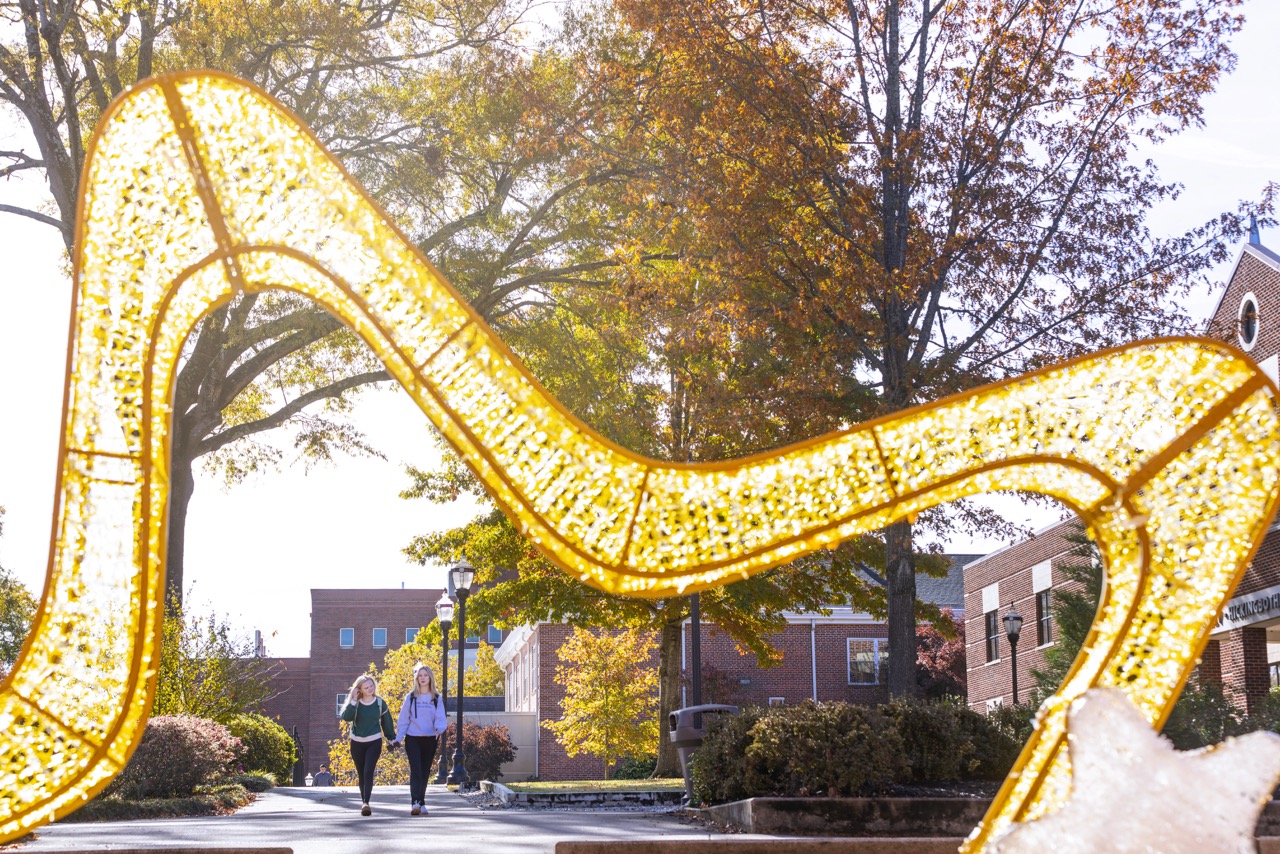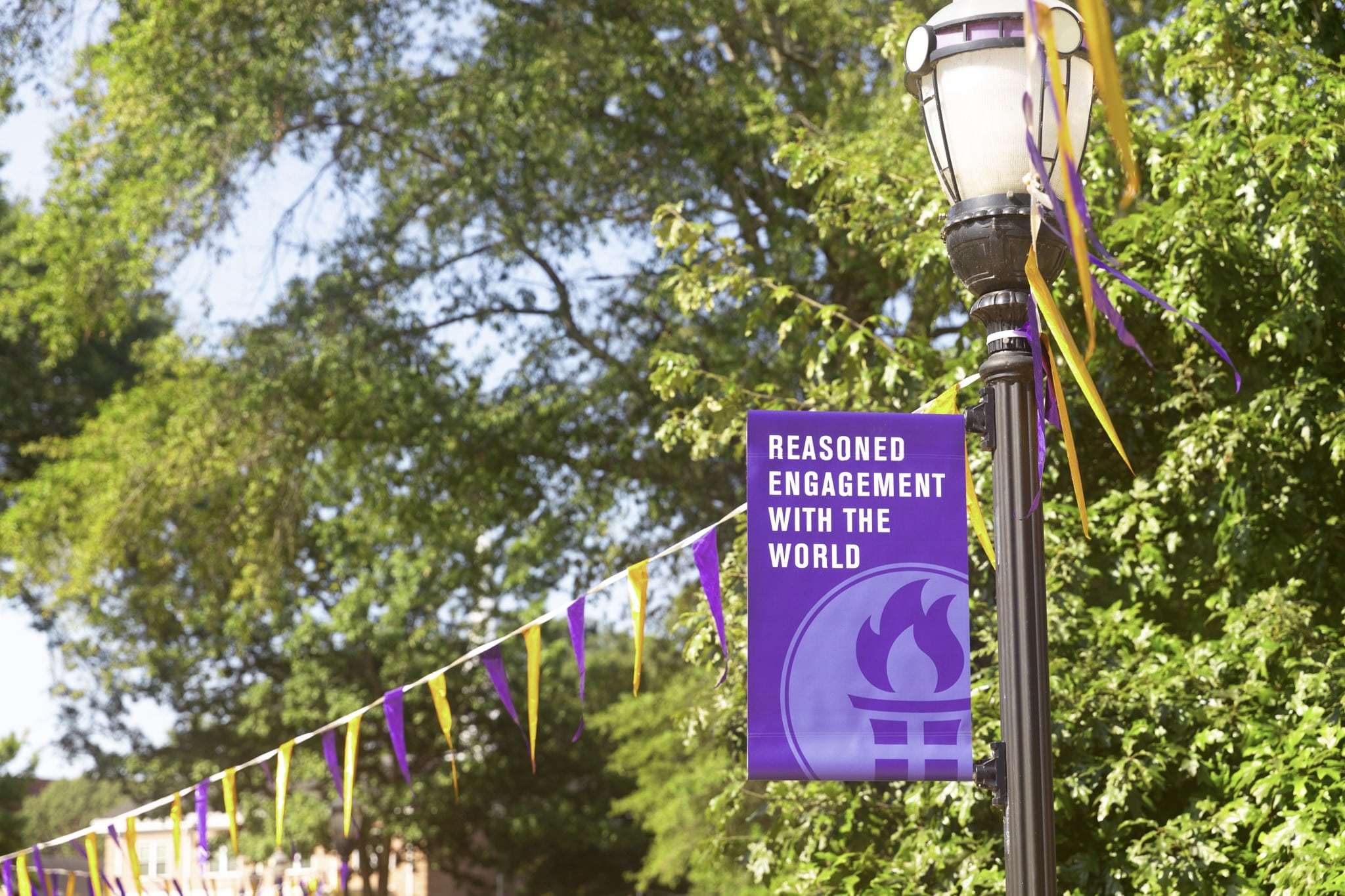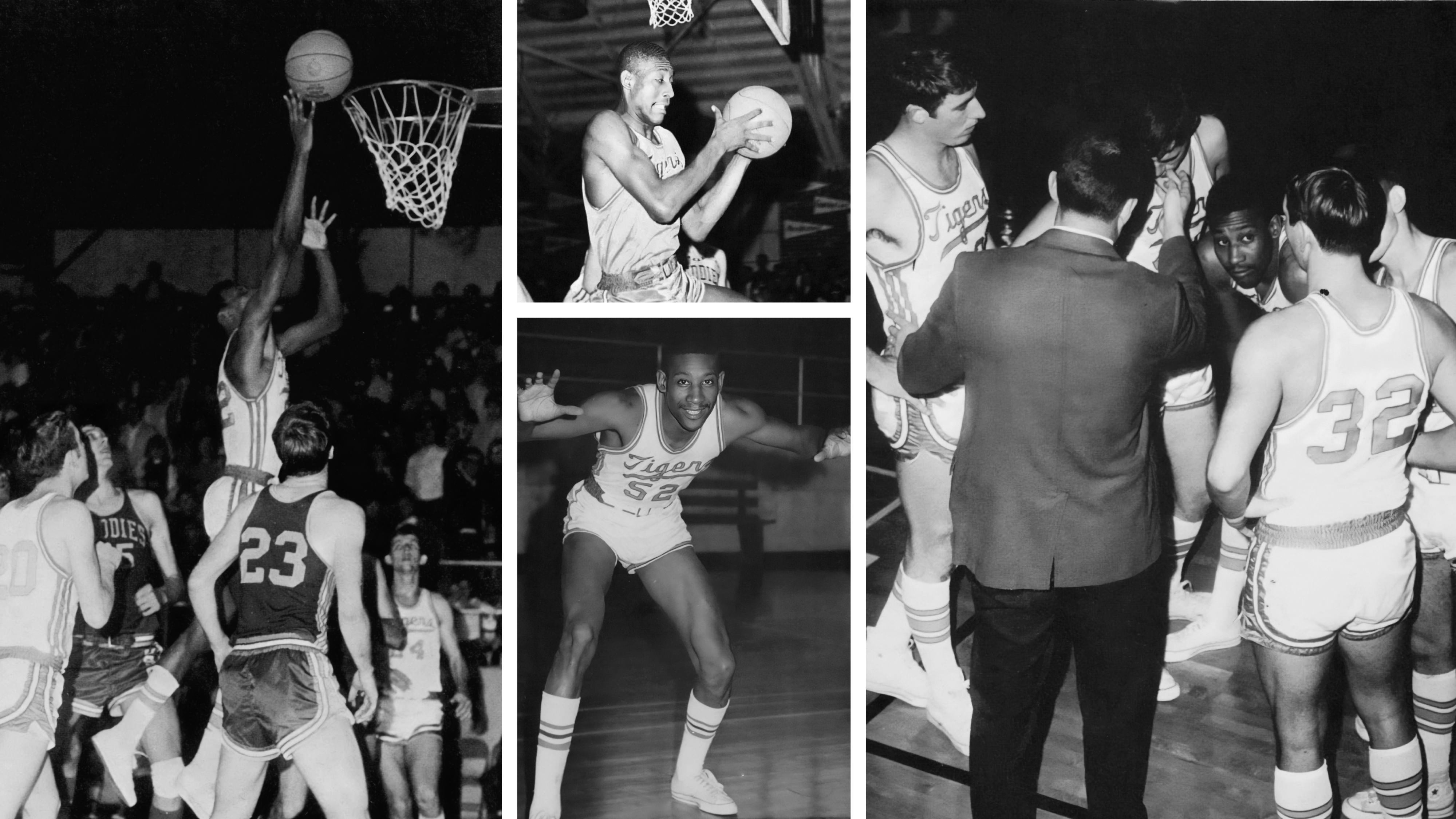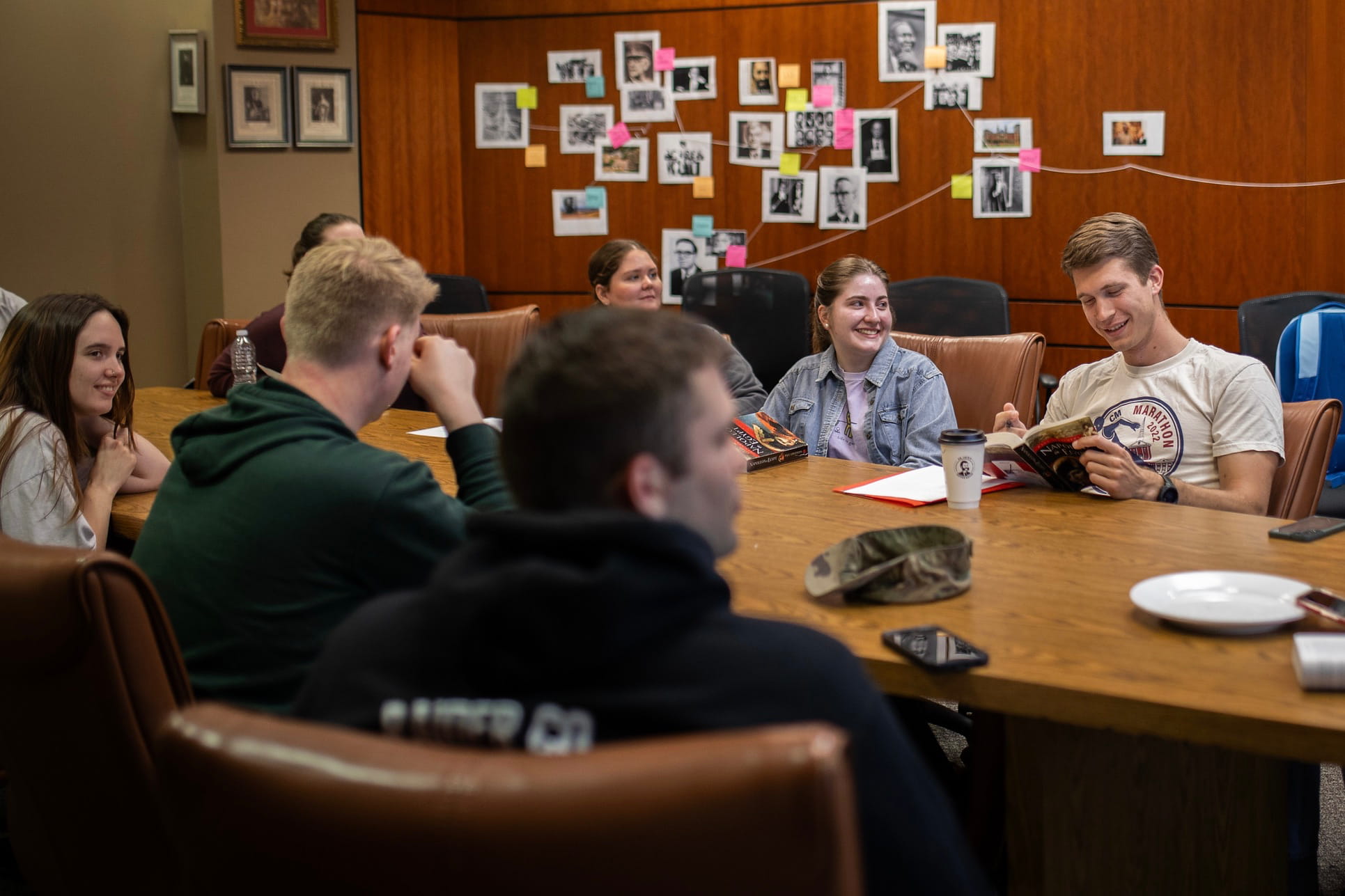I believe, help my unbelief
2023 Convocation Address
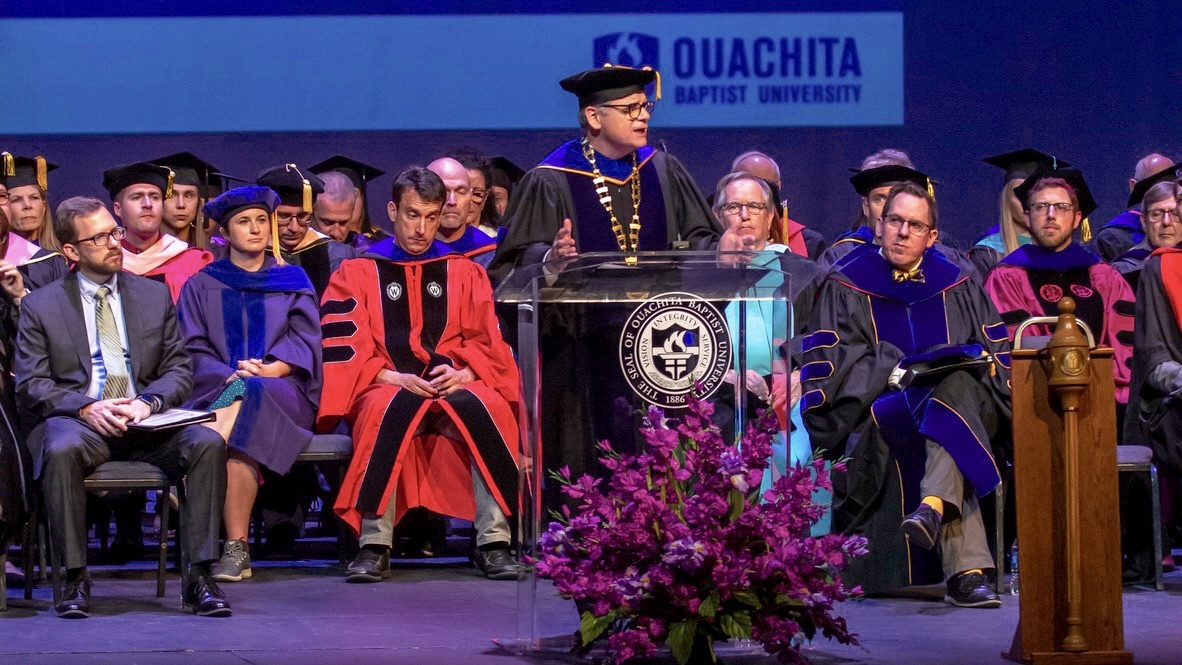 October 12, 2023
- Ben R. Sells
October 12, 2023
- Ben R. SellsWith Convocation, we formally bring together new and returning students with faculty and staff to begin the 138th year of Ouachita Baptist University.
Once a week, we pause campus life for Chapel. We come together to sing, to pray, to hear scripture and to be encouraged. Together. I believe this time together helps make Ouachita, Ouachita. I rarely miss Chapel.
In the late 1990s, Lisa and I lived in Richmond, Va. We had three young children,
and I worked at the Southern Baptist International Mission Board headquarters.
We became friends with a family that joined our church. The husband was new to the Christian faith, and he wanted to meet weekly with me to read the Bible. I still remember when we discussed Chapter 9 of Mark’s Gospel.
Here’s the storyline. It begins with Jesus and three disciples on a mountain top. Jesus’ clothes suddenly become radiant. A cloud overshadows them, and they hear God speak, saying: “This is my beloved Son, listen to him.”
Then Jesus and his disciples walk down the mountain. He notices the commotion in a large crowd. The people see Jesus; they are greatly amazed and run to him. He asks, “What are you arguing about?”
A father steps forward and describes his son’s terrible affliction. Jesus listens and wants to see the son. He asks how long the boy has been this way. “Since childhood,” the father replies.
The father is desperate. As a parent, when your child has a problem, especially when it’s lasted for years, you will take radical steps to help them.
So, the father boldly says to Jesus: “If you can do anything, have compassion on us and help us.”
Jesus replies: “If you can! All things are possible for one who believes.”
The father says, “I believe. Help my unbelief.” Then Jesus takes the son by the hand and heals him.
Remember, my friend and I are discussing this story over coffee. At this point, he says to me, “I’m like that father! I believe. But help me overcome my unbelief.”
My friend, new to following Jesus and being honest about his doubts, wanted God’s help to believe all that the Bible promises for Christian faith and living.
Around this same time, I’m at work listening to a discussion among leaders of missionaries – people who have come from their assignments all over the world, who have graduate degrees in Christian studies and are veterans of the Christian faith. The speaker asks these Christian leaders to identify their biggest challenge. I thought they would list the challenge of living far from home or working in difficult places.
Instead, they said something like this: “Sometimes we struggle with believing that God will bless the people and missionary work he’s called us to.”
I think they were saying, “I’ve been a follower of Jesus for a long time, yet there are still areas in my life that I need help to believe all the Bible promises.”
In other words, “I believe, help my unbelief.”
I wasn’t surprised when my friend, new to the Christian faith, said: “I believe, help my unbelief.” I do remember being surprised 25 years ago by similar words from people much farther along in the Christian faith.
But over time, my surprise has faded.
First, I am reminded of the 24th chapter of Luke. It tells of Jesus appearing to his disciples after his resurrection. For three years they had lived in close contact with Jesus. They saw with their own eyes his crucifixion. They had heard a report about the resurrection. And now Jesus stands before them resurrected from the dead.
Luke writes that they were “filled with joy” and “in disbelief.” Joy and disbelief do often seem to be involved with faith.
Second, I got older. As a college student, I became more serious about Christian faith; my faith has become more convinced and stronger over the following 40 years. I can look back and see more clearly that during the harder times in life, my mistakes and my sin can be redeemed by God.
Yet, here in my sixth decade, I face something new: the challenge to finish well as a husband, father, grandfather and in other areas of life. Even in this stage of my life, I’ve found myself saying to the Lord, “I believe, but help me overcome the times when I may not fully believe you to help me finish well and be the person you intend.”
All summer I’ve been thinking about this encounter between Jesus, the father and his son. I’ve thought about how my friend, new to the Christian faith, quickly understood the words of this father. And about how my friends, who were veterans in the faith, also deeply understood and prayed to Jesus: “I believe, help my unbelief.”
And I’ve wondered, as we begin this year among students, faculty and staff, if your request to Jesus might be like mine: “I believe, help my unbelief”?
Or maybe your request is even more direct: “God, help me believe.”
I’ve thought about how I understand this desperate father and his desire to rescue his child. I think the father came to realize he was not good enough, smart enough or strong enough to save his son.
That had to be a hard moment of personal honesty and humility. Then he had to profess publicly in front of a crowd and before Jesus himself that he needed help – not only for his son, but also for himself.
Certainly, being good, smart and strong are areas worth cultivating in our lives. For believers, they can reflect Christian virtues such as character, wisdom and perseverance. But in this broken world, even our best attempt to be people of virtue won’t be fully made right until Christ returns.
There are so many problems and challenges that can’t be overcome with our personal virtues, no matter how hard we try. Maybe it’s a challenge like one of mine – the challenge to finish well.
Among our campus community, we could name other challenges: with our families, relationships with friends, concerns about finances, fears about the future, grief that comes from loss, repeated sin or the worry of an unresolved health issue. And a much longer list.
I’ve learned that it’s tempting at each stage in life to believe too much in myself when facing challenges – to think that being better, smarter and stronger is enough. Or to do the opposite: use the attraction of people or pleasure to avoid problems altogether.
I admire the father in this story – his motivations, his honesty about doubt and his determination to believe. And I can’t imagine his relief and the son’s joy when healing comes.
Yet the story can also point us to this reality: that there is an even better father and a better son.
Recall that God the Father, with Jesus and disciples on a mountain top in a cloud, says to his disciples – and in turn to us: “This is my beloved Son, listen to him.”
Recall that God the Father, with Jesus and disciples on a mountain top in a cloud, says to his disciples – and in turn to us: “This is my beloved Son, listen to him.”
Jesus is the better son in this story. The one who most deserves our attention in the story, and ultimately our belief and trust.
Jesus comes down from the mountain to a crowd and finds the desperate father. He’s looking for you and me, too. Jesus is compassionate and listens to them, and to us.
Jesus says to the father and the crowd and to us: “All things are possible for one who believes.”
I can’t fully grasp what Jesus means when he says, “All things are possible for one who believes.” Perhaps the father couldn’t either. But he believes in Jesus and in his authority, and that “all things” means “all things.”
The father, demonstrating boldness, humility and faith, responds to Jesus by saying: “I believe, help my unbelief.” Jesus answers his request, and he will for you and me.
Last week, your faculty and staff gathered to pray for you. The name of every student is on a card, and there’s someone praying for every one of you this year. This is my card.
Our prayer, work and hope are that you will have a great year, one that will be deeply meaningful. Yet, we know there are and will be challenges.
Maybe you’re new to the Christian faith, or a veteran, or somewhere in between, and you find yourself like the father in our story – and like me, aware you’re not strong enough, good enough and wise enough to fix what’s broken in your life.
I encourage you to join me and ask Jesus: “I believe, help my unbelief.” And see what comes of that prayer.
Maybe you’re like my friend who grew up with some knowledge of religion, but not faith in Christ. Chapel is required, but we’re not here to force Christian faith on you. We’re here to invite you to listen and consider. We invite you to be open about your doubts, even as you open yourself to what it might mean to believe.
Together, as Ouachita Baptist University in our 138th year, as a Christ-centered learning community, with our traditions and strengths, with our challenges and doubts and with boldness, humility and faith, we ask Jesus for help and then trust the God of the universe that all things are indeed possible.
By Dr. Ben Sells, Ouachita president
Lead photo by Joshua Rhine
You Also Might Like
Recent
Ouachita reports Spring '26 enrollment, led by 50% increase in graduate students
February 11, 2026

